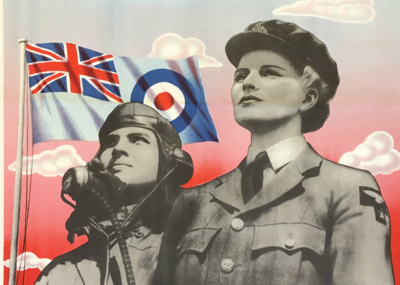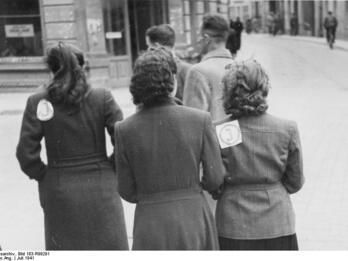Yizkor, 1943
Rachel Auerbach
1943
Condemned to death. Who could—who wished to understand such a thing? And who could have expected such a decree against the mass? Against such low branches, such simple Jews. The lowly plants of the world. The sorts of people who would have lived out their lives without ever picking a quarrel with the righteous—or even the unrighteous—of this world…
Creator Bio
Rachel Auerbach
Born in Lanowce, Galicia (now Lanivtsi, Ukraine), Rachel Auerbach (also spelled Rokhl Oyerbakh) was a Yiddish essayist and historian. In 1933, she moved to Warsaw and was active in modernist literary circles. During World War II, she ran a soup kitchen, worked closely with Emanuel Ringelblum, and wrote prolifically while in hiding outside the ghetto. Following the war, Auerbach helped lead the mission to recover the Oyneg Shabes archive, documents compiled during the war that detail life in the ghetto and buried shortly before the ghetto’s destruction. In 1950, she settled in Israel, where she helped establish the Yad Vashem Holocaust memorial.
Related Guide
Holocaust and Post-Holocaust Life-Writing and Reportage
Life writing and reportage captured individual Jewish experiences in a period of conflict and uncertainty.
Related Guide
The Holocaust: Years of Catastrophe
Jewish writing in Nazi-occupied areas documented ghetto life, moral questions, and Jewish identity, while writers in free zones grappled with the unfolding tragedy.
Auerbach wrote this elegy to the Warsaw ghetto after the Nazis destroyed it and deported the remaining residents to concentration camps. The title of the poem comes from the name of the Jewish memorial service recited on Yom Kippur. The Hebrew word means, “may He [God] remember,” and the service is intended to commemorate those who have died and to encourage atonement among the living. By using this symbolic religious language, Auerbach adopts a traditional Jewish liturgical framework for honoring Jewish martyrs while underscoring the indiscriminate plight of the victims.
Why do you think Auerbach emphasizes the geography of the ghetto in this poem?
What are the implications of the poem’s concluding statement that those who have died violent deaths because they are Jewish are now in the majority?
Is there a specific detail in this poem that brings the immense tragedy of the Holocaust to bear for you?
Language:
Places:
You may also like

Jewish Resistance and the Holocaust
From armed confrontation to religious defiance, Jews fought back against the perpetrators of the Holocaust.
The Lithuanian Yeshivas
A Cityful of Jews
Yellow Star and Swastika: A Story of Servitude



